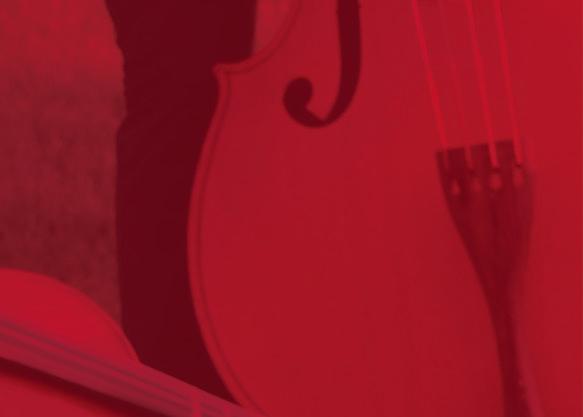
12 minute read
Raider Resilience: Embracing New Challenges and Upping Our Game During the Global Pandemic
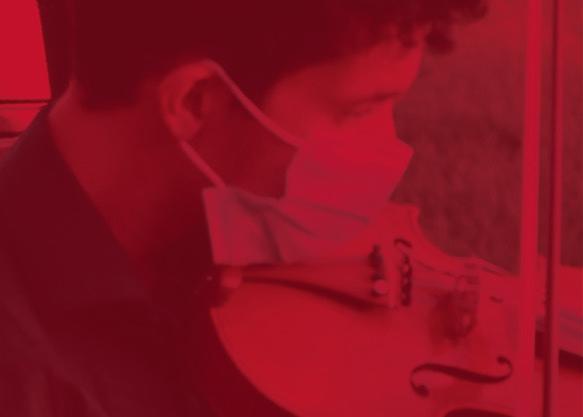
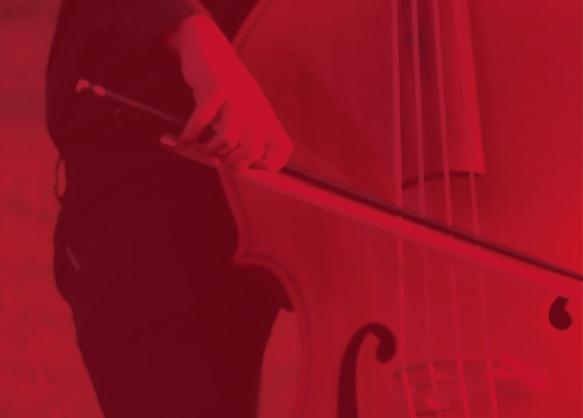
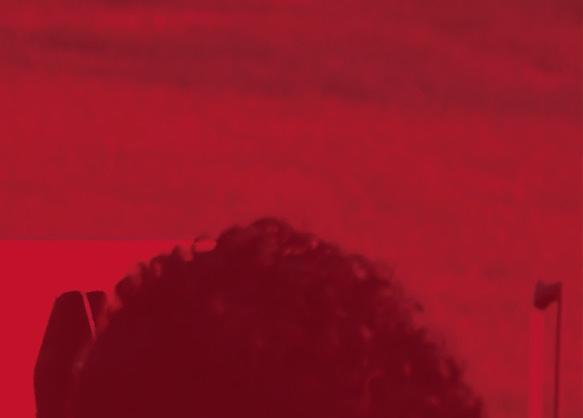
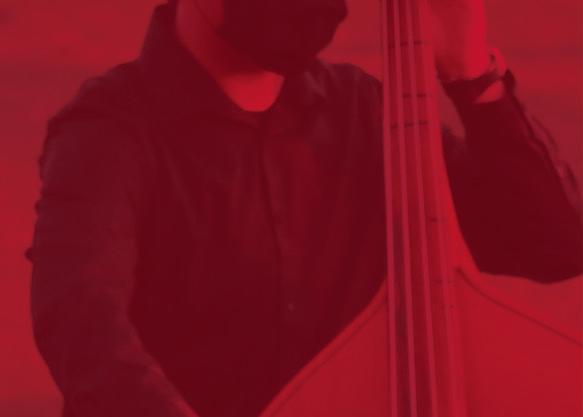
RAIDER RESILIENCE:
Embracing New Challenges and Upping Our Game During the Global Pandemic
The pandemic thrust us into a very diff erent way of proceeding this past school year. In responding to an everchanging landscape of health and safety requirements, we relied on our resourcefulness and creativity. In seeking to present the full complement of our programming, we learned much about our capabilities and capacity to make dramatic shifts in how we undertake this critical work. Here, two of our students—Molly Nichols ‘23 and Mason Harris ’24—share the places where our resilience as a community shone through despite the challenges we faced together.
A New Way of Teaching…Virtually
In the midst of a pandemic, it’s been diffi cult to adjust to a diff erent way of life, including new ways of teaching for fourthyear social studies teacher, Leslie Diedrich. Making the most out of shorter class periods and schedule changes, teachers needed to focus on which topics were a priority to teach. “I thought if I only have this much time with students, what would I want them to remember about my class fi ve years into the future,” Diedrich says. Teaching online created a sense of disconnect with students, especially for teachers who love student discussion. There were also issues involving technology and lack of focus. “Some of the failures I had to realize were out of my control,” she explains. “It’s just the nature of online teaching.”
Some changes to her approach Diedrich hopes to carry into further years. “Getting away from lectures, doing more group work as a way of getting students to have relationships with
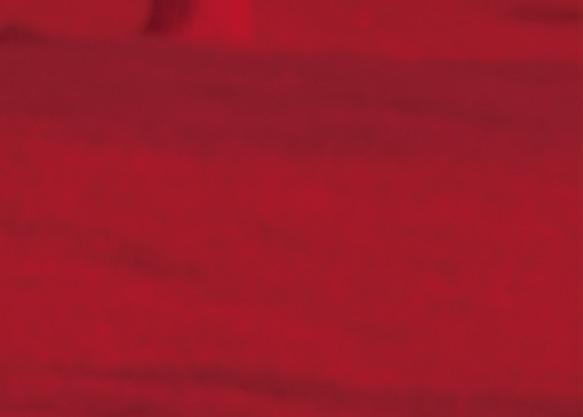
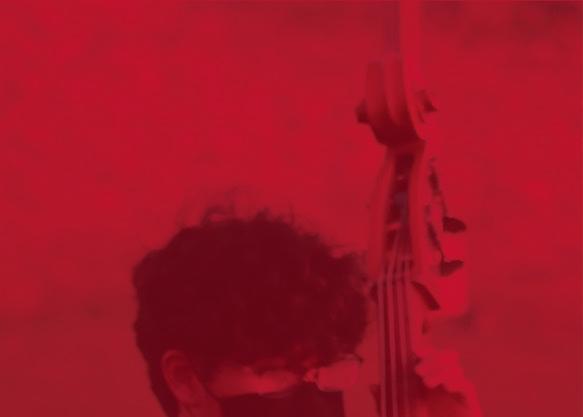
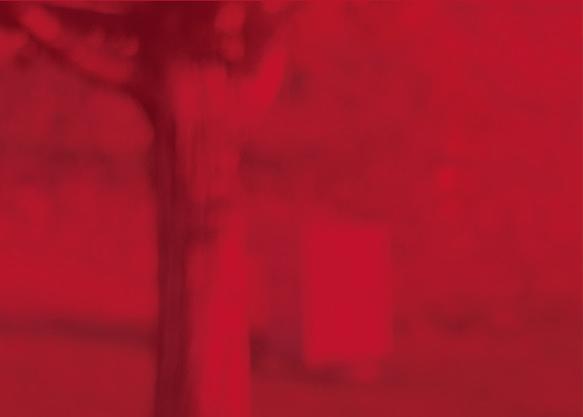
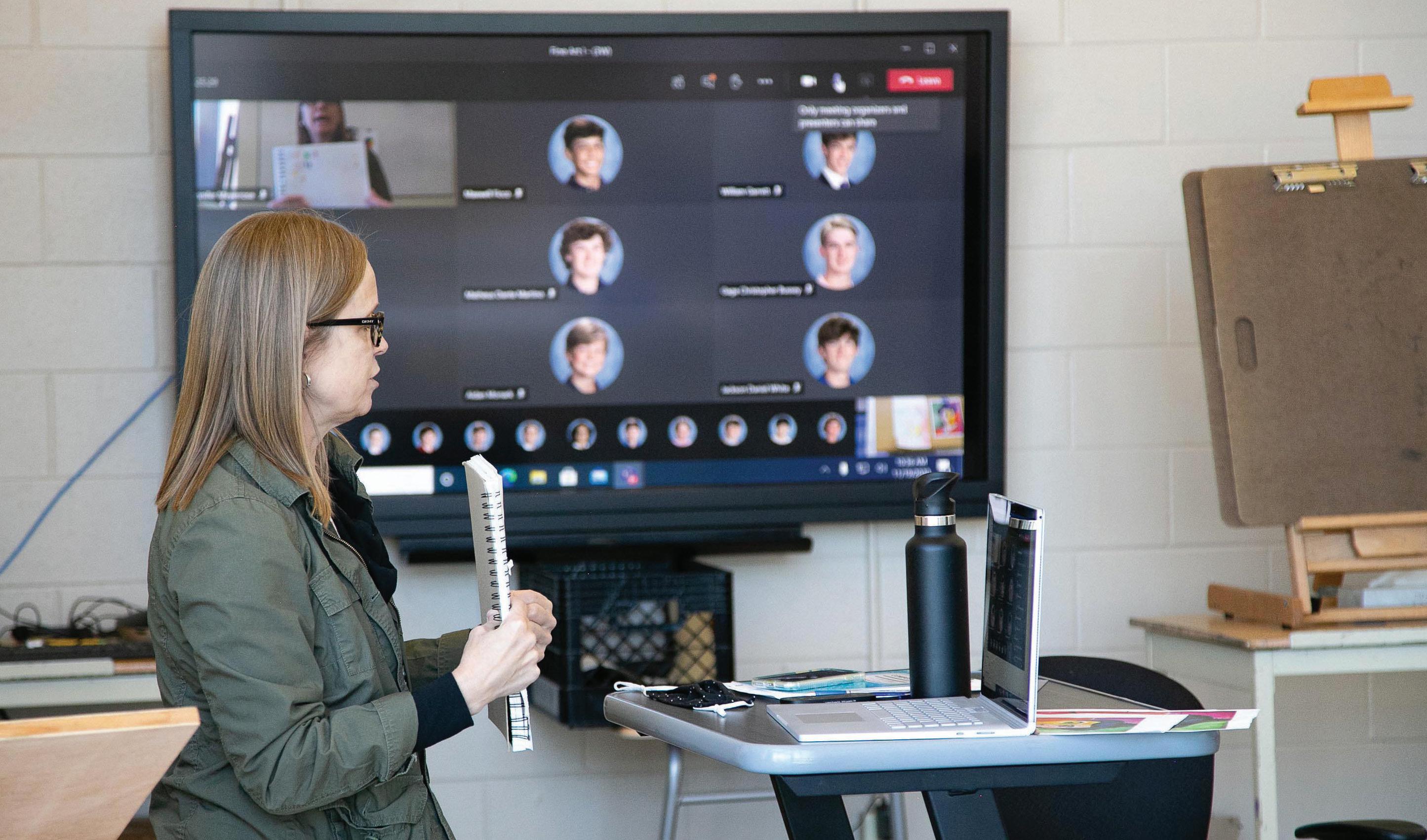
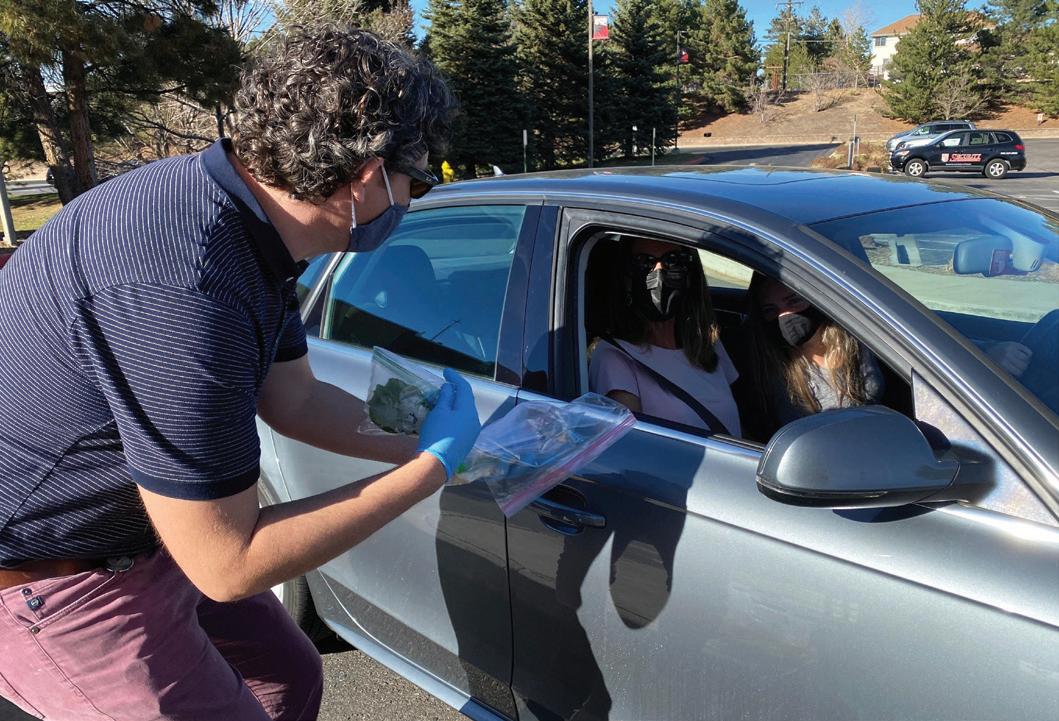
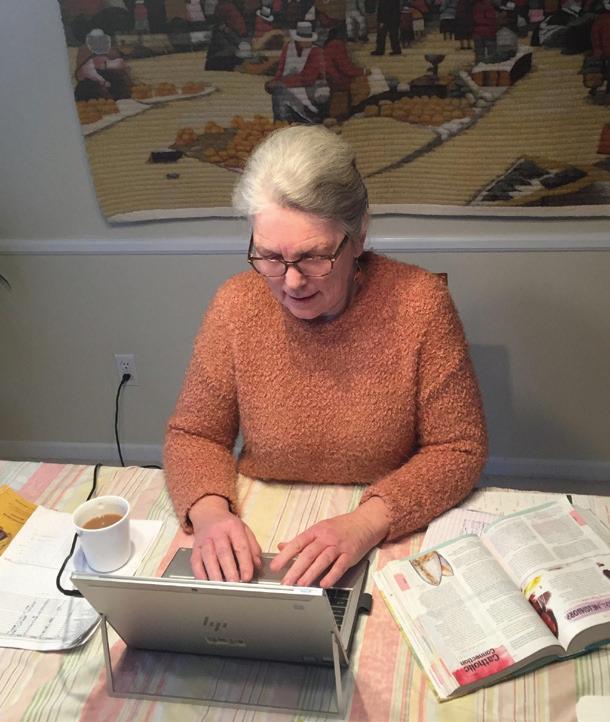
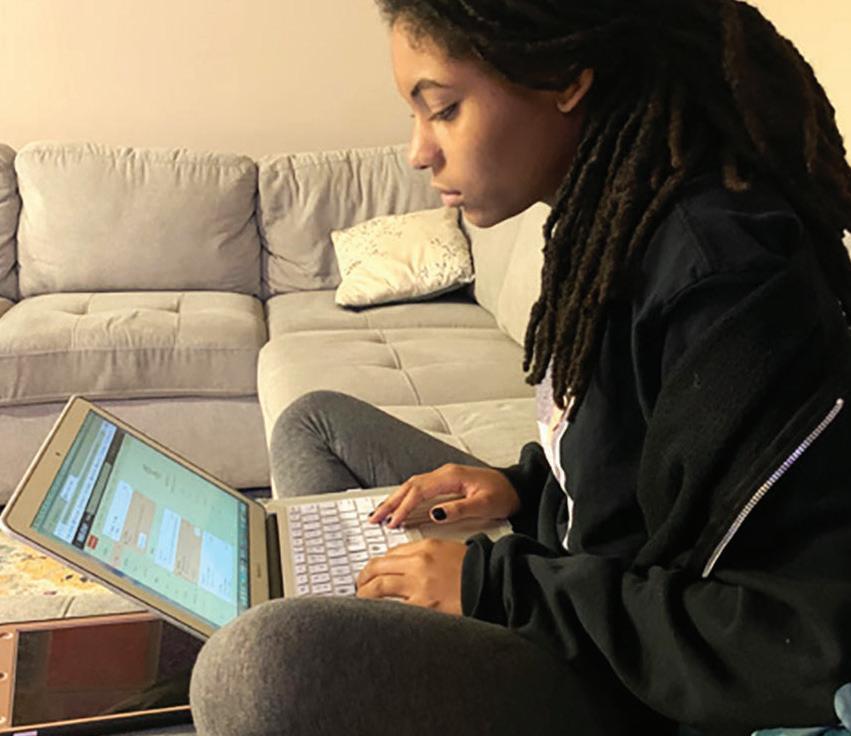
their peers were strategies I used,” she explains. She also learned to see the good even when her lesson plan didn’t turn out as expected, emphasizing her gratitude for the students’ engagement in discussion. “I would always think ‘oh, that was a good day,’ even if my lesson didn’t go super great,” she says.
Teachers in departments across campus made creative and educational adjustments in response to COVID restrictions. Early in the year, when only half the students were on campus at one time, attempting experimental data analysis across a screen was a challenge. However, AP Biology teacher Kevin Russell, pictured above left, exercised ingenuity, creating teams of two that conducted experiments together, with one partner completing the lab in the classroom and the other watching the experiment from home. “While it wasn’t seamless, it did allow us to build some collaborative opportunities,” Russell says. Late in the first semester, the need for labs became crucial for students planning on taking the AP Biology Exam in May. The science team went about adapting lab procedures to be done at home that had previously only been done at school. “We reworked a lab that measures the rate of photosynthesis and another lab that measures the rate of fermentation in yeast cells,” Russell describes. Many students took it upon themselves to work with partners and compare data sets to make the experiments even more impactful.
Student mental health is a constant priority for teachers, but even more so in this past year. Diedrich, someone who believes in the power of relationships especially during the current crisis, sought ways to make things easier on her students as the importance of good mental health for herself, her coworkers and her students became clearly evident this year. She hopes that the school continues to take additional steps to embrace the importance of mental health and carries the lessons learned this year forward. While much more difficult this year, creating community within the classroom was all the more important. “It makes me happy to feel like I know my students and have a strong relationship with them,” Diedrich shares.
A New Outlook on Kairos and the Retreat Program
A large part of the Regis Jesuit experience is learning and growing in relationship with God through the retreat program. The pandemic required a significant shift in how our retreats were conducted, but Regis Jesuit made it a priority to continue offering these transformational opportunities for our students. Boys Pastoral Director Fr. Eric Ramirez, SJ recalls, “[The school] was saying we can do this! Nothing’s going to stop us.”
Changes started with Boys Kairos K133, which was supposed to take place after Spring Break 2020. It was postponed until early August, allowing time for school leaders to think creatively about the approach and work with the student leaders to make adjustments. Could hugging and handshaking continue? Where would students sleep? Some answers came in the form of hand sanitizer and plentiful classroom space; others took some trial and error. Challenges were manifold with regulations requiring changes to the approach and quarantines impacting leader and retreatant participation. Yet, in the end, the school was able to conduct all the Kairos Retreats in person (even one in a blizzard) and present Freshman, Sophomore and Senior Retreats in innovative ways.
Some changes made to Kairos will endure beyond the pandemic. “Sleeping in their own rooms gave students an opportunity to be by themselves,” Fr. Ramirez says. “Some were journaling, being more attentive…it really made the difference for them.” Unable
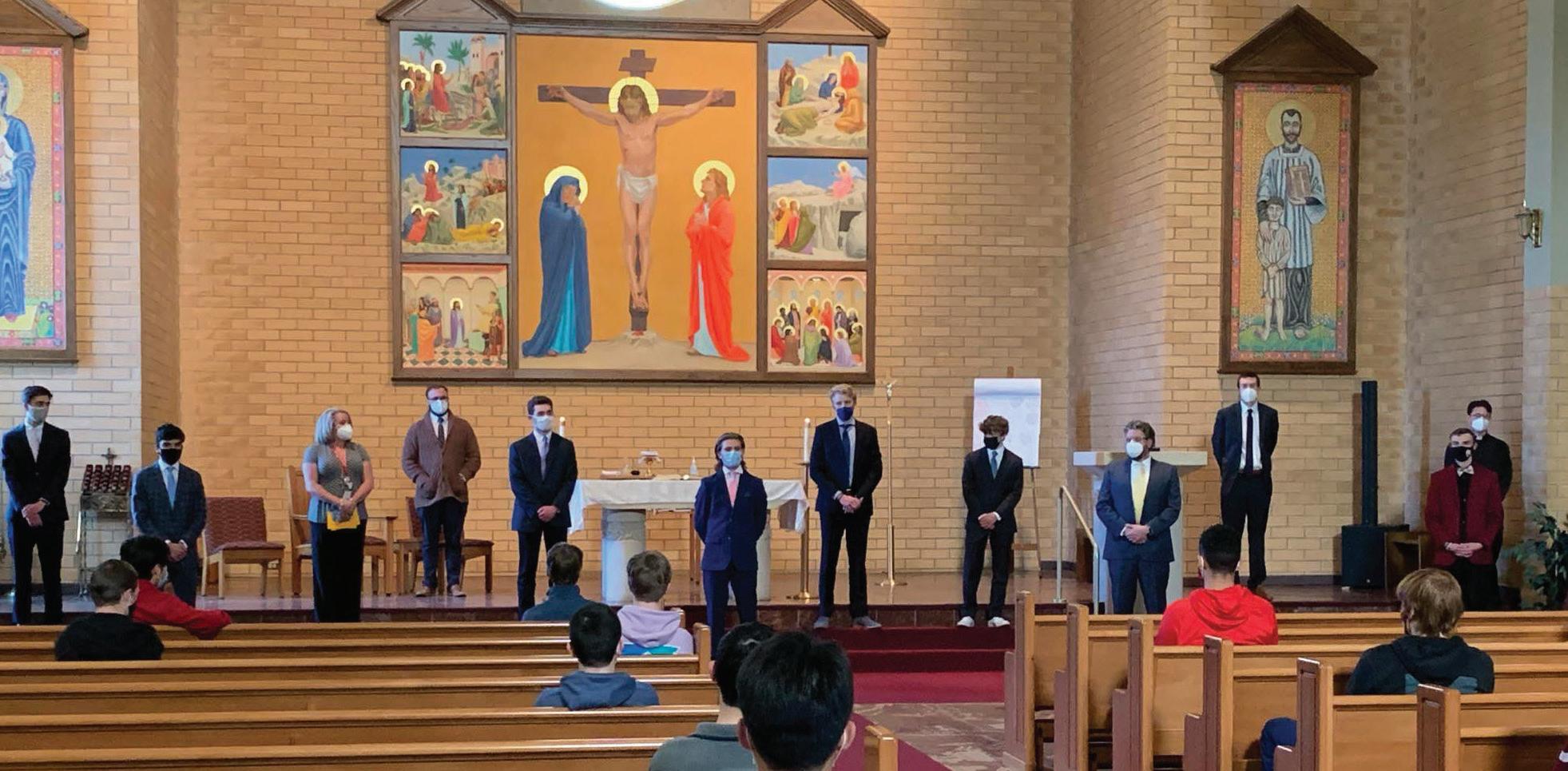
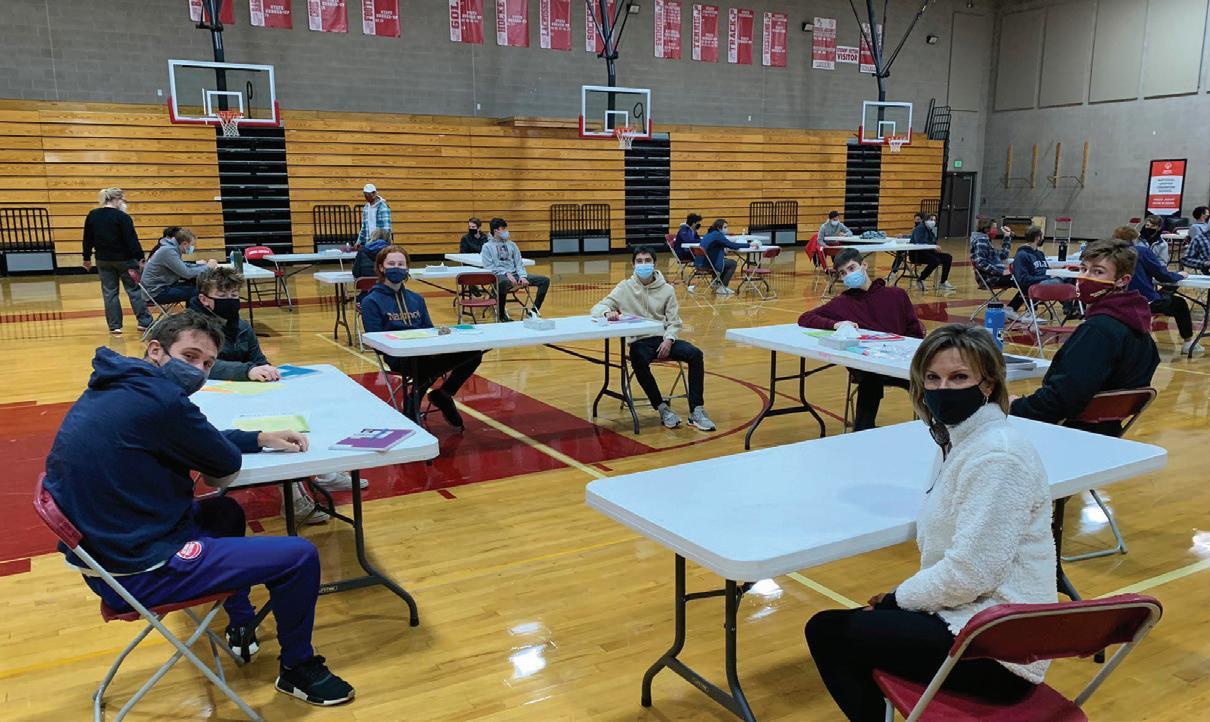
to share rooms with one another because of restrictions in place made it possible for students to spend time in reflection when quiet time on retreat can be sparse. That was an unexpected learning from this year’s approach.
There are three pillars that make for a successful retreat: good student leadership, the openness of participants and, of course, God’s presence. All of these remained priorities for organizers and proved to be the backbone of all, but especially the Kairos Retreats, this year. “K133 back in August was a hallmark moment for this school,” Ramirez describes, “We did 12 Kairos [Retreats] this year…the most we’ve ever done in any year, and we did it in the middle of a pandemic.”
In March 2020, when the future of our world looked so uncertain, and it was impossible to see what would come next, the Regis Jesuit Retreat Program doubled down and was strengthened, to the point where other Jesuit schools across the country have asked how we did it. Within countless bottles of Purell, students found community and support through retreat experiences. Ramirez reiterates, “We can do this! Nothing is going to stop us.”
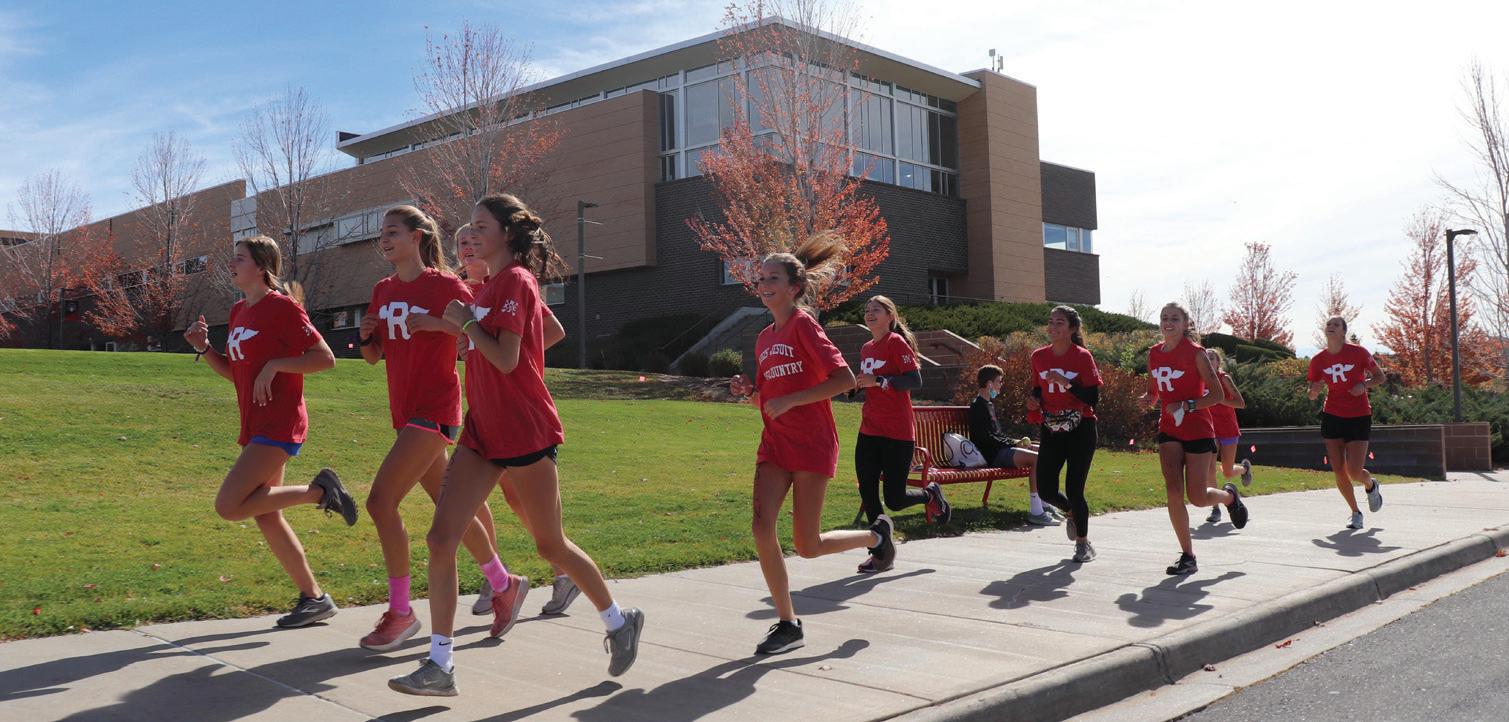
Still Committed to Doing Justice
Like nearly everything else, the way students engaged in service this year had to shift. Opportunities for in-person engagement were limited, but there was still a need, especially for organizations focused on areas like food distribution or tutoring for students suddenly learning at home through a screen. Undaunted by the obstacles, Regis Jesuit students rose to the challenge, giving time and energy to help community members in need near them. Christina Ortiz, Director of Ignatian Immersion & Solidarity, recalls being inspired “to see students say ‘yes, I’m having one of the hardest years of my life, but it’s nothing compared to what other people are experiencing.’”
Ortiz worked to provide alternate ways for students to support local and international community partners, including hosting a 5K on campus to support a long-time service partner International Samaritan, which ended up raising more than $20 thousand in support of virtual learning resources for students in Guatemala, Ethiopia, Honduras and Jamaica. Other efforts included a drive-through Valentine’s Day parade for the elderly and a pen pal program for immigrant detainees, both of which may continue beyond this year.
An additional way Regis Jesuit educates students is to offer opportunities for immersion that expose students to real-life adversities. Trips to work and serve in Belize, New Orleans, Guatemala and more recently to the Tijuana border, provide students a way to see things from a different perspective. Recognizing that our conventional immersion experiences wouldn’t be possible with border and travel restrictions, faculty organizers pivoted to plan five mini-immersion experiences that would expose students to current global issues in ways beyond what can be explored in the classroom. These opportunities were open to seniors who went through a rigorous application process to be selected to participate.
“Certainly, there’s no better way to experience it than to have direct encounters with people on the border, and it was really powerful spending four days in Tijuana and hearing those stories and working in shelters, but the reality is that this
issue hits home a lot closer than we think. Aurora is the most diverse city in Colorado, by far,” notes Adam Dawkins ’98, who chaperoned the Tijuana immersion in 2019 and helped organize this year’s mini-immersions.
As part of the “Welcoming the Stranger Among Us: Justice for Immigrants and Refugees” mini-immersion, participants watched Crossing Borders, the student-produced documentary from the 2019 Tijuana trip that portrays a close-up view of the immigration crisis at the U.S.-Mexican border. They also traveled to an ICE detainee facility just a few miles away from Regis Jesuit, where they witnessed the current reality for refugees, asylum seekers and immigrants, and offered prayers for those detained. Through the experience, the students realized that the immigration crisis is closer to them than they had previously thought.
Throughout the spring semester, there were several additional opportunities for students to engage with local communities and dive deeper in their understanding of current social and environmental justice issues. In one, a group of students spent time encountering those suffering from homelessness and poverty, while a second focused on environmentalism and land, air and water conservation.
It remains an integral objective of Regis Jesuit to drive formation deeper through these personal encounters and to provide opportunities for authentic kinship with our neighbors and our environment in forming Men and Women with and for Others.
The importance of service remains in encountering a community of brothers and sisters in Christ. “This program exists for the purpose of creating that perspective and fostering a spirit of compassion and service,” Ortiz explains. While it’s important to give back, it’s also crucial to find new perspectives and see the people you’re serving in a new light. Ortiz hopes that through the experience RJ students learn not to identify people by their need, but to distinguish them as a friend. Ortiz explains, “What we do is twofold: meet the needs of vulnerable communities and form students who care about those communities.” That has become so much more vital in this past year and has helped us connect to not only the world around us but to the communities around us. “We’ve created meaningful connections and strengthened others with the people around us which is what service is all about,” Ortiz explains.
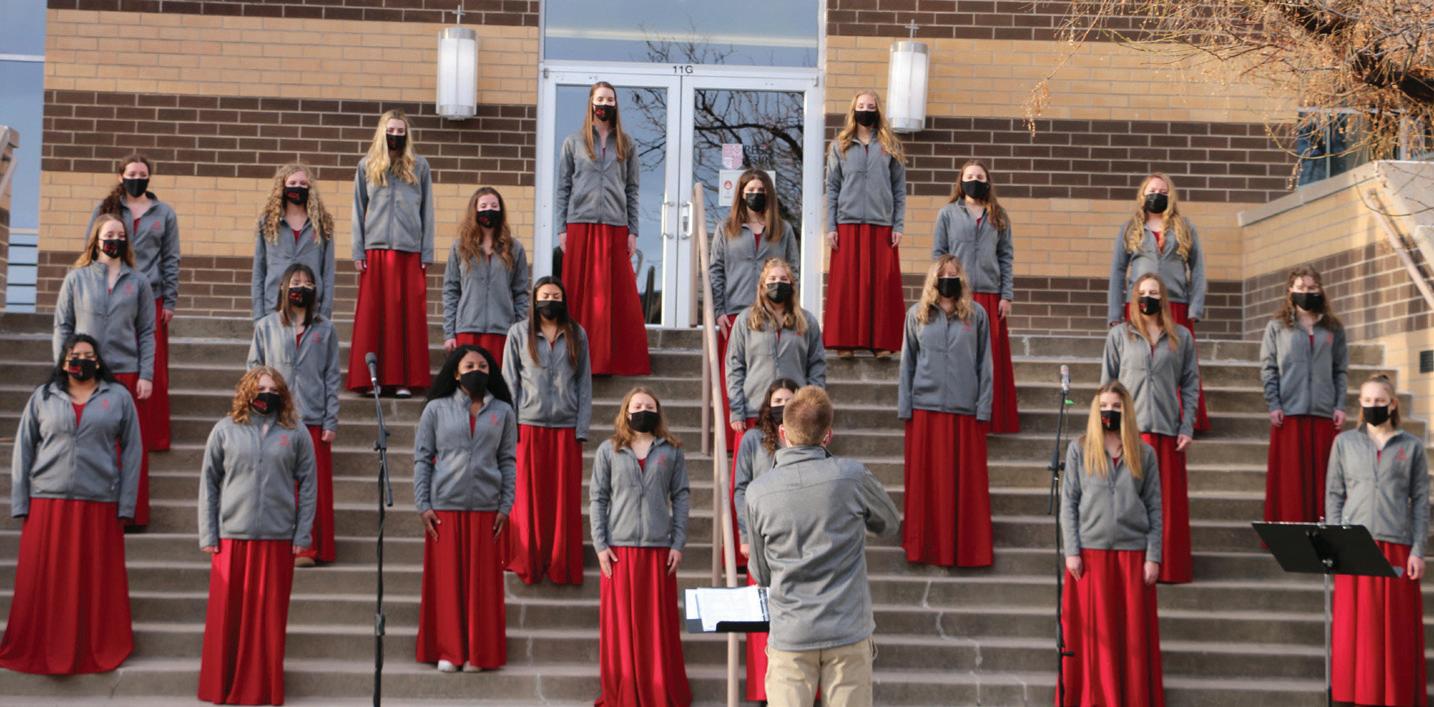
The Transformation of Music and Performances
Regis Jesuit has long maintained a strong Performing Arts program that promotes innovation and creativity. The pandemic challenged these principles, but the program held firm. The performing arts faculty learned in August that any singing or woodwind or brass instrument playing had to occur outside and that singers would be required to wear masks always, even during performances. Though these precautions were intended to keep students and staff safe, they raised multiple obstacles for teaching and performing.
Veteran music teacher Bernie Sauer ’97 recalls, “It was daunting to think about, like how are we going to do this? So, in the beginning, you had to think outside the box, you had to come up with a lot of different virtual plans where things were a little more individualistic.” At first, Sauer was baffled. He felt defeated. He quickly realized that this was a chance to display the program’s versatility and immediately began to brainstorm. The choir could hum, as it posed less risk than singing, so he started with that. In band, he implemented beat drills filled with rhythms and tempos. In time, his classes adapted, and substantial progress was made. Along the way, unbreakable bonds were formed between classmates and teachers.
“Through all of this adversity… all of these unconventional obstacles that we had to face, I felt like my choirs and the band really bonded, and we formed more friendships; we had to rely on each other; we had to laugh at our mistakes,” Sauer remembers.
Looking back, Sauer is appreciative of the challenges the program faced and believes the future of the program has never been brighter. Even better, he and his colleagues have come out of this year with tons of fresh, innovative ideas.
“It was a challenging year, but now that I look back on it, I think more good came out of it because of the challenges. I just feel like we grew closer as a team because we kind of had to. And if you got that one opportunity of playing or singing outside, [we] didn’t want to show up unprepared. So, this whole department did a wonderful job of staying sane and using music as a way to cope and get through the obstacles with hope,” Sauer shares, “I want to dedicate all of the work to the students who couldn’t make these concerts. There were a lot of quarantine lists. I’m just proud of every single student who stuck with the performing arts and again, were able to express themselves joyfully, whether they were learning an instrument for the first time, or if they’ve had experience singing, composing or playing an instrument. It’s just really nice to celebrate the end of the year, no matter how many odd, unconventional, bizarre things happened.”
Visit the Performing Arts End-of-Year Showcase to see spectacular performances by students in Advanced Piano, Canta Belles, String Orchestra and more at www.regisjesuit.com/PerformingArtsShowcase










